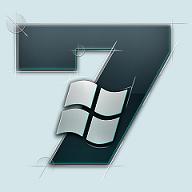
A single check box(复选框) deep in the guts of the next version of Windows is giving Microsoft Corp. watchers a peek at how the software maker plans to keep European antitrust regulators(欧洲反垄断监管机构) from marring(破坏) a crucial software launch.
Windows 7, the successor to the much-maligned(倍受攻击的) Vista, isn't expected to reach consumers until next year, but more than a million people are already testing early versions. A pair of bloggers tinkering with settings stumbled upon(偶然发现) one they hadn't seen before: The ability to "turn off" Microsoft's own Internet Explorer browser.
Microsoft lost a long-running battle with EU antitrust regulators in 2007 over the way it bundled media player software into the Windows operating system. The dust had barely settled when a similar claim was filed, this time over Internet Explorer's place inside Windows. Opera Software ASA, a Norwegian competitor, claimed the practice gives Microsoft's browser an unfair advantage.
In a preliminary decision in January, the EU agreed. Since then, makers of the open-source browser Firefox and Google Inc., which entered the browser market six months ago, have offered to provide more evidence that Microsoft is stifling(遏制) competition.
In the media player dispute, the EU heavily fined Microsoft and forced it to sell a version of Windows without the offending program installed. This time, Microsoft appears to be offering the check-box solution as a way to head off(阻止) a similar ending.
The company declined to comment Friday on the connection between the check boxes and the EU's preliminary decision. But in a recent quarterly filing, it said the European Commission may order PC makers to install multiple browsers on new PCs and force Microsoft to disable parts of its own Internet Explorer if people chose a competing browser.
The check boxes, which were described on Microsoft enthusiast blogs http://www.aeroxp.org and http://www.chris123nt.com, also give Windows 7 users a way to disable the media player and hard-drive search programs, among other components, both of which have drawn scrutiny from regulators.
After Windows Vista landed with a thud, Microsoft needs a hit, said Michael Cherry, an analyst for the research group Directions on Microsoft. Beyond appeasing the EU, he said he didn't see much use for the Internet Explorer check box.
"Windows 7 is becoming more and more important for Microsoft," he said in an interview. "You don't want anything that gives anyone even a doubt as to whether or not they should upgrade."

